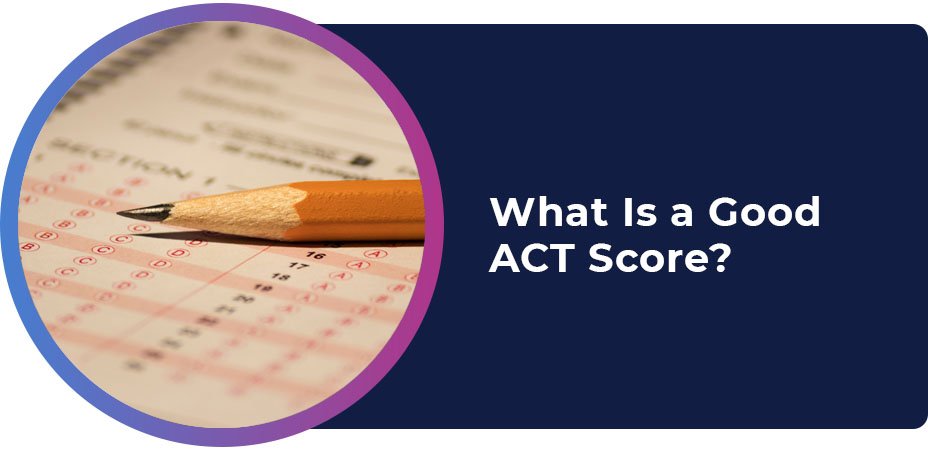Contents
How Is the ACT Scored?
What’s the Average ACT Score?
What’s a Perfect ACT Score?
What Counts as a Good ACT Score?
What ACT Score Do You Actually Need?
Check Your Admission Chances Based on Your ACT Score
The ACT is a standardized test that colleges use to assist with making admissions decisions. The test contains four core sections—English, Math, Reading, and Science—as well as an optional Writing section.
One of the biggest questions students have is, “What’s a good ACT score?” But there’s no one-size-fits-all answer because what’s “good” depends on your goals and the schools you’re targeting.
In this article, we’ll break down ACT scores—what makes them competitive, how to understand yours, and more. First, let’s start with how the test is scored.

Curious about SAT scores?
Unsure about test-optional applications? Check this out.
Want to know what is on the test? Learn more here.
Considering taking the ACT or SAT? Read this.
How Is the ACT Scored?
To determine what a good ACT score is, you’ll first need to know how scoring functions. As you might already be aware, the ACT is scored from 1 to 36, with 1 being the lowest and 36 being the highest. Your overall composite score is the average of your four section scores (each also graded from 1 to 36).
But how do the numbers really play out? Each score is equal to the number of questions you answered correctly in a section (and, no, you don’t lose points for incorrect answers). Percentiles are then assigned to each score after all test-taker scores have been gathered to indicate how you compare with others.
For the graduating class of 2022, the national average composite ACT score was 19.8. You can access the latest averages and percentiles at the ACT’s official website. This provides you with a way of comparing your score to other test takers in the same testing year.
ACT scores are bell-curved—most test-takers score close to the middle, while very few get the highest or lowest possible scores.
What’s the Average ACT Score?
For 2021, the composite average score was 20.3. In 2022, it fell to 19.8.
What’s a Perfect ACT Score?
The perfect ACT score is 36—the highest. The test is scored 1–36, each section graded separately, and your composite score is the average of the four. The optional Writing section is separately scored (2–12) and doesn’t factor into your composite.
To achieve a score of 36, you’d have to get every question correct in all four sections that are required. As there’s no penalty for incorrect answers, you should always guess if you’re not sure.
Though a 36 is certainly great, it’s not necessarily a requirement for elite colleges. Selective colleges have mid-to-high 20s average ACT scores. Other things—such as extracurriculars, essays, and recommendations—are big factors, too. Nevertheless, an elevated ACT score can help your prospects and even land you college scholarships.
What Constitutes a Good ACT Score?
We’ve discussed that the average ACT score is about 20, and a perfect score is 36. So, anything between could be “good.”
However, in all seriousness, a good ACT score is one that:
Gives you acceptance into your dream school
Puts you into your target program
Assists you in getting financial aid (if necessary)
The more selective the college, the greater the ACT score expectations. The best colleges have average ACT scores of well above 30, and less selective colleges accept lower scores.
What ACT Score Do You Really Need?
Now that you understand the averages, here’s what to do next:
Narrow down your college list and review their average ACT scores for accepted students (tip: you can find this in our college profiles). Review their 25th and 75th percentile scores.
Practice like it’s another class—because, let’s face it, it is. Your ACT score can determine your college options. Some students purchase tutors, some use study books, and some take practice tests.
Retake if needed—you can take the ACT multiple times and only submit your best score.
Generally, the closer your score is to a school’s 75th percentile, the better your odds. But remember, admissions aren’t just about test scores—we’re here to help you navigate the rest.
Check Your Admission Chances Based on Your ACT Score
Now that you know what makes a good ACT score, use it to refine your college list.
